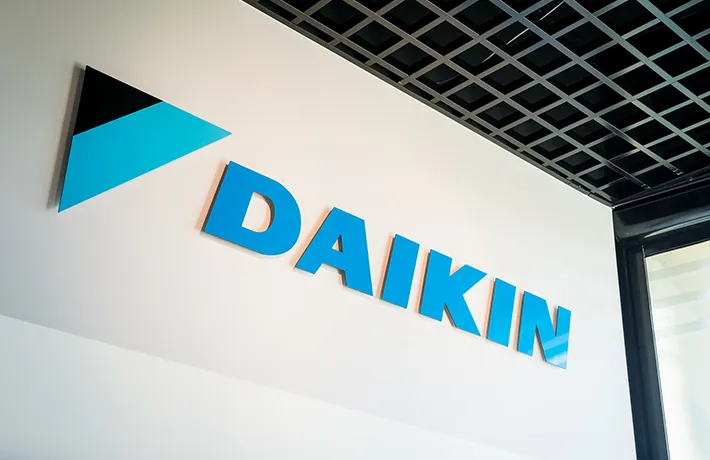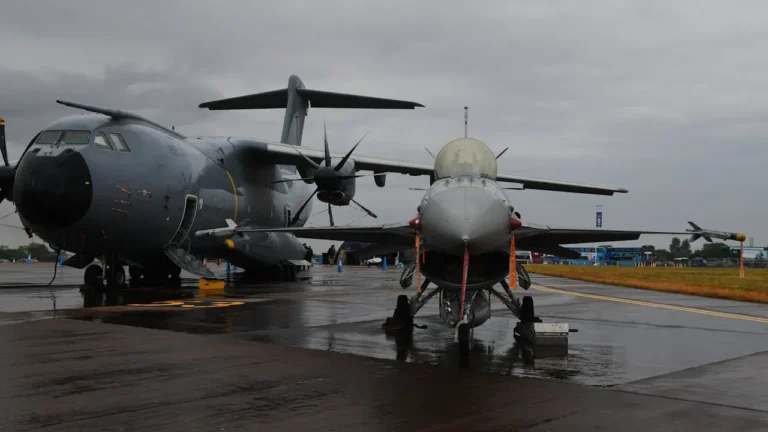
Daikin Signs MOU with Senegal to Strengthen Industrial Workforce and Skill Development
Daikin Industries, Ltd. has announced the signing of a significant memorandum of understanding (MOU) with the Government of Senegal and the Senegal-Japan Vocational Training Centre (CFPT-SJ). This collaboration also involves the Japan International Cooperation Agency (JICA), Toyota Tsusho Corporation, NEC Corporation, Toda Corporation, and Yamaha Motor Co., Ltd. The agreement marks an important step in advancing technical training and industrial skill development in Senegal, with the ultimate goal of strengthening the country’s workforce and supporting sustainable economic growth.
The MOU outlines a joint framework for cooperation, with Daikin committing to provide training programs at the CFPT-SJ beginning in 2026. These programs will primarily focus on building expertise in after-sales service personnel within the air conditioning sector, one of the company’s areas of global leadership. For Senegal, which is rapidly advancing industrially, the initiative is expected to help address the growing demand for skilled labor, particularly in technical industries where sophisticated knowledge and hands-on expertise are increasingly required.
Addressing Senegal’s Evolving Workforce Needs
Over the past decade, Senegal’s economy has undergone structural transformation, with expanding infrastructure, industrialization, and foreign investment. This growth has created new opportunities but has also brought challenges, particularly in terms of ensuring that the local workforce possesses the technical capabilities needed by modern industries. Companies expanding in the West African region often face difficulties in recruiting highly skilled technicians who can meet global standards, especially in specialized fields such as HVAC (Heating, Ventilation, and Air Conditioning), automotive, and information technology.
The MOU is designed to tackle these challenges head-on. By introducing training programs that align with international best practices, Daikin and its partners aim to enhance the skill set of Senegalese workers while ensuring that industries in the region have access to qualified personnel. This approach not only benefits individual workers—who gain access to higher-quality training and better job opportunities—but also supports the competitiveness of industries operating in Senegal.
Role of the CFPT-SJ in West African Training
The Senegal-Japan Vocational Training Centre (CFPT-SJ), which was established in 1984 with grant aid from JICA, has long played a central role in technical and vocational education in Senegal and across West Africa. Over the years, the institution has built a strong reputation for producing skilled graduates who contribute to the region’s industries, from manufacturing to construction and beyond. Its facilities, expertise, and training programs make it an ideal partner for expanding the scope of industry-specific vocational education.
By leveraging the CFPT-SJ’s infrastructure and Daikin’s expertise in the HVAC field, the new training initiative is expected to strengthen both the local capacity for vocational training and the broader industrial ecosystem. The collaboration also reinforces Japan’s longstanding role in supporting human resource development in Africa through technical assistance and partnerships.
Daikin’s Global Human Resource Development Strategy
This initiative is part of Daikin’s wider global strategy to invest in human resource development across multiple regions. As a world leader in the HVAC sector, Daikin has consistently emphasized the importance of education and technical training, not only to ensure the growth of its own business but also to contribute to the long-term sustainability of industries worldwide.
The company actively collaborates with universities, technical institutes, and vocational training centers in various countries to build a pipeline of skilled professionals. By doing so, Daikin positions itself not merely as an equipment manufacturer but as a driver of industry-wide development, helping to prepare the next generation of technicians and engineers who will support the transition to sustainable, high-tech industries.
Statements from Daikin Leadership
Junichi Omori, Executive Officer and General Manager of the Global Operations Division at Daikin Industries, Ltd., highlighted the importance of the new agreement in his remarks. “We are very honored to have this opportunity to contribute to talent development, which we believe will lead to the economic growth of Senegal and West Africa, as well as to the future development of the air conditioning business,” Omori said. He added that Daikin is “committed to swiftly advancing the implementation of this initiative to launch the program,” signaling that preparations are already underway to ensure the training program begins on schedule in 2026.
A Pathway to Broader Regional Impact
While the MOU focuses initially on training personnel in Senegal, its potential impact extends beyond national borders. Given the CFPT-SJ’s role as a regional training hub, the programs developed under this agreement could serve as a model for other West African nations seeking to enhance their industrial workforce. By equipping workers with specialized knowledge and skills, the initiative may also support broader goals of regional integration, economic resilience, and sustainable development.
In particular, the focus on after-sales service personnel in the HVAC industry is highly relevant. As Africa urbanizes and demand for modern infrastructure grows, the need for reliable air conditioning and ventilation systems will expand significantly. Skilled technicians trained under the program will not only meet this rising demand but will also help establish higher standards of quality and service across the region.




